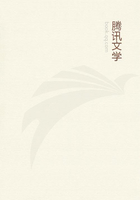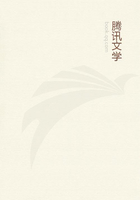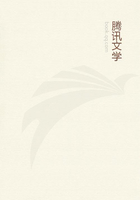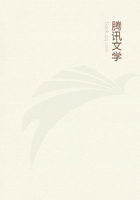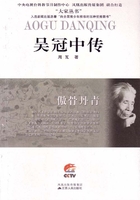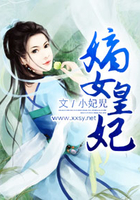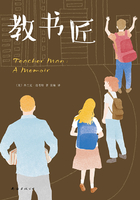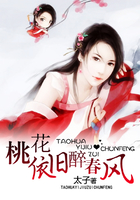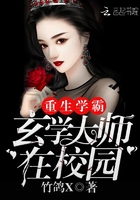The history of Latin composition cannot here be traced in detail.For fully two centuries the humanists acted as if Latin were, and must remain, the only language worthy to be written.Poggio deplores that Dante wrote his great poem in Italian; and Dante, as is well known, actually made the attempt in Latin, and wrote the beginning of the 'Inferno' first in hexameters.The whole future of Italian poetry hung on his not continuing in the same style, but even Petrarch relied more on his Latin poetry than on the Sonnets and 'Canzoni,' and Ariosto himself was desired by some to write his poem in Latin.A stronger coercion never existed in literature; but poetry shook it off for the most part, and it may be said, without the risk of too great optimism, that it was well for Italian poetry to have had both means of expressing itself.In both something great and characteristic was achieved, and in each we can see the reason why Latin or Italian was chosen.Perhaps the same may be said of prose.The position and influence of Italian culture throughout the world depended on the fact that certain subjects were treated in Latin--'urbi et orbi'--while Italian prose was written best of all by those to whom it cost an inward struggle not to write in Latin.
From the fourteenth century Cicero was recognized universally as the purest model of prose.This was by no means due solely to a dispassionate opinion in favour of his choice of language, of the structure of his sentences, and of his style of composition, but rather to the fact that the Italian spirit responded fully and instinctively to the amiability of the letter writer, to the brilliancy of the orator, and to the lucid exposition of the philosophical thinker.Even Petrarch recognized dearly the weakness of Cicero as a man and a statesman, though he respected him too much to rejoice over them.After Petrarch's time, the epistolary style was formed entirely on the pattern of Cicero; and the rest, with the exception of the narrative style, followed the same influence.Yet the true Ciceronianism, which rejected every phrase which could not be justified out of the great authority, did not appear till the end of the fifteenth century, when the grammatical writings of Lorenzo Valla had begun to tell on all Italy, and when the opinions of the Roman historians of literature had been sifted and compared.Then every shade of difference in the style of the ancients was studied with closer and doser attention till the consoling conclusion was at last reached that in Cicero alone was the perfect model to be found, or, if all forms of literature were to be embraced, in 'that immortal and almost heavenly age of Cicero.' Men like Pietro Bembo and Pierio Valeriano now turned all their energies to this one object.Even those who had long resisted the tendency, and had formed for themselves an archaic style from the earlier authors, yielded at last, and joined in the worship of Cicero.Longolius, at Bembo's advice, determined to read nothing but Cicero for five years long, and finally took an oath to use no word which did not occur in this author.It was this temper which broke out at last in the great war among the scholars, in which Erasmus and the elder Scaliger led the battle.
For all the admirers of Cicero were by no means so one-sided as to consider him the only source of language.In the fifteenth century, Politian and Ermolao Barbaro made a conscious and deliberate effort to form a style of their own, naturally on the basis of their 'overflowing' learning, and our informant of this fact, Paolo Giovio, pursued the same end.He first attempted, not always successfully, but often with remarkable power and elegance, and at no small cost of effort, to reproduce in Latin a number of modern, particularly of aesthetic, ideas.His Latin characteristics of the great painters and sculptors of his time contain a mixture of the most intelligent and of the most blundering interpretation.Even Leo X, who placed his glory in the fact, 'ut lingua latina nostro pontificatu dicatur facta auctior,'
was inclined to a liberal and not too exclusive Latinity, which, indeed, was in harmony with his pleasure-loving nature.He was satisfied if the Latin which he had to read and to hear was lively, elegant, and idiomatic.Then, too, Cicero offered no model for Latin conversation, so that here other gods had to be worshipped beside him.
The want was supplied by representations of the comedies of Plautus and Terence, frequent both in and out of Rome, which for the actors were an incomparable exercise in Latin as the language of daily life.A few years later, in the pontificate of Paul II, the learned Cardinal of Teano (probably Niccolo Forteguerra of Pistoia) became famous for his critical labors in this branch of scholarship.He set to work upon the most defective plays of Plautus, which were destitute even of a list of the characters, and went carefully through the whole remains of this author, chiefly with an eye to the language.Possibly it was he who gave the first impulse for the public representations of these plays.
Afterwards Pomponius Laetus took up the same subject, and acted as producer when Plautus was put on the stage in the houses of great churchmen.That these representations became less in common after 1520, is mentioned by Giovio, as we have seen, among the causes of the decline of eloquence.
We may mention, in conclusion, the analogy between Ciceronianism in literature and the revival of Vitruvius by the architects in the sphere of art.And here, too, the law holds good which prevails elsewhere in the history of the Renaissance, that each artistic movement is preceded by a corresponding movement in the general culture of the age.In this case, the interval is not more than about twenty years, if we reckon from Cardinal Adrian of Corneto (1505) to the first avowed Vitruvians.

